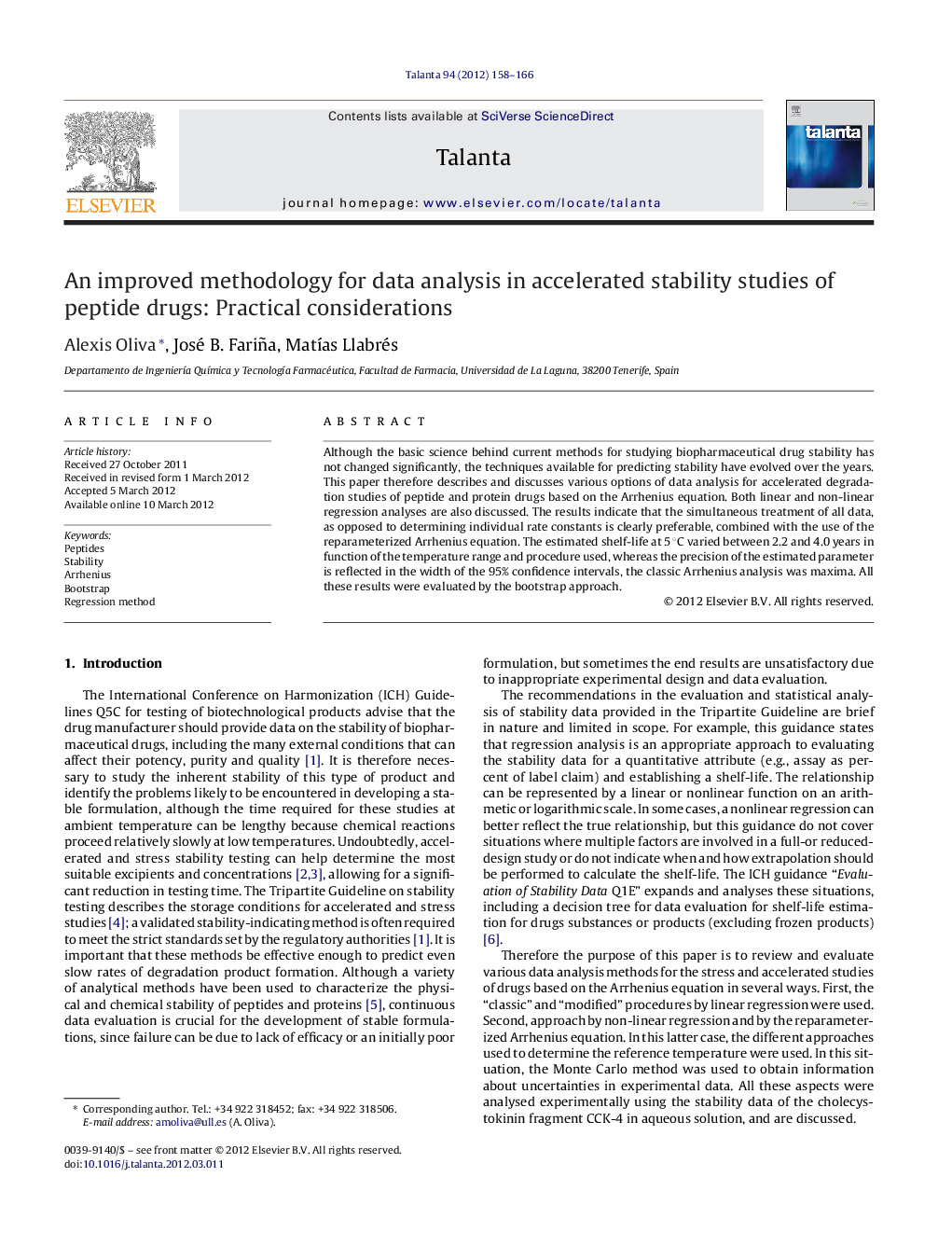| Article ID | Journal | Published Year | Pages | File Type |
|---|---|---|---|---|
| 1245629 | Talanta | 2012 | 9 Pages |
Although the basic science behind current methods for studying biopharmaceutical drug stability has not changed significantly, the techniques available for predicting stability have evolved over the years. This paper therefore describes and discusses various options of data analysis for accelerated degradation studies of peptide and protein drugs based on the Arrhenius equation. Both linear and non-linear regression analyses are also discussed. The results indicate that the simultaneous treatment of all data, as opposed to determining individual rate constants is clearly preferable, combined with the use of the reparameterized Arrhenius equation. The estimated shelf-life at 5 °C varied between 2.2 and 4.0 years in function of the temperature range and procedure used, whereas the precision of the estimated parameter is reflected in the width of the 95% confidence intervals, the classic Arrhenius analysis was maxima. All these results were evaluated by the bootstrap approach.
► We evaluate various data analysis methods for assessing accelerated drugs stability. ► The shelf-life at 5 °C varied from 2.2 to 4 years in function of used approach. ► The classic Arrhenius analysis showed the higher uncertainty. ► All these results were evaluated by the bootstrap approach. ► Data analysis procedures allow us control the risk of falsely concluding stability.
